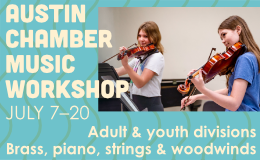by Jennifer VanBuren
It’s often one of the most exciting, terrifying and life-changing experiences between parents and children: the campus visit. Determining which institute of higher learning will be your teenager’s new home for the next four (or five) years is undoubtedly a monumental decision, and for many families, touring one or more college or university is the first step in making that choice. Before you pack your bags and sign up for your first ice cream social, read on for tips to make the most of your college visit.
The game plan
Planning ahead assures you get the most of the time and money set aside for college visits. Before traveling cross-country to visit your choice campuses, do some practice tours of local colleges so you can get a feel for what to expect, gain confidence to ask questions at informational sessions and converse with current college students. Explore the college’s website to determine which campus facilities you would like to visit and who you would like to meet. Print out a map of their campus – some campuses span several city blocks and may even have off-site buildings, so you should plan a route to best utilize your time.
Key players
Campus tours are usually led by current students and will give you a general view of the campus. This student guide may or may not be familiar with your major or department of choice. Contact the academic departments of interest and arrange to talk with the department chair or a professor. Ask if you can meet with a student within that department and tour the facilities specific to your major. If you are interested in the sciences, ask for a tour or to sit in on a laboratory session to determine if the equipment is up to date and if labs are taught by professors or teaching assistants. If you want to major in art and concentrate in sculpture, arrange to sit in on the class and meet the professor. He may be a great artist but a grumpy, impatient teacher.
Schedule appointments ahead of time with people of interest, such as coaches, clergy or music directors; they may not be available for walk-in meetings on the day of your visit. If you have medical issues, be sure to visit the medical clinic and determine how they approach students with similar challenges. Will they write you prescriptions for medication you are currently taking? If you are currently being treated for depression, anxiety or other mental health issues, ask if there is a counselor that is available to students. If so, set up an appointment to meet with him or her.
Who’s got your back?
If you have a learning disability or other academic challenges, make an appointment with the university’s academic support program. Is the overall feel of the school one of inclusion, with accommodations for students with special challenges? Are there support groups or special classes to help you cope with any difficulties that arise? If you have challenges in mobility, be sure all buildings are accessible.
All students should check out the academic safety nets in place. What would happen if you fall behind in a class or are struggling in a particular course? Does the school provide free tutoring, and if not, what is the cost? Many freshmen come into college without the study skills needed to succeed. Find out if there are free seminars that focus on these issues.
The low-down on down-time
Only a small portion of your time as a freshman will be in the classroom. What do students do when they’re not in class? Check for fliers stapled to kiosks across campus to see upcoming events. Head to the student center and check out their calendar to determine if the college provides safe and healthy social activities such as movie nights or cultural outings for students. Ask random students what they do for fun.
College students usually have access to many school or student-sponsored special interest and social clubs, such as chess, photography, student government and service organizations. Academically-oriented clubs, such as Model UN, speech and debate and geology clubs are also common. If one or more interest you, arrange to meet with a member to learn about their activities.
Physical Activity
Only a small percentage of students will compete with the official college teams, but all benefit from the exercise and camaraderie that are a part of being on a team. Visit the student athletic center to find out about their intramural athletics and programs. Most colleges offer programs such as volleyball, golf, basketball or tennis. If you are not interested in organized sports but want to keep active and fit, check to see if there are safe running trails, a track and a readily available fitness center and arrange for a tour of the facilities. Find out if there is time in the gym or on the courts and fields for informal pick up games.
Getting around
Transportation is especially important for those without a car. If you’ll fall into that category when you leave for school, scan the area for local restaurants, shopping centers, movie theaters and other attractions that can be reached by walking or on bike. If there is reliable and affordable public transportation available, take it for a test run to see if you feel safe and comfortable.
Food for thought
David Porter, a consultant to colleges and universities throughout North America and author of “The Porter Principles,” a guide to college success through social engineering, points out that campus dining is often overlooked durring campus visits. “Many universities require freshmen to live on campus for the first year because administrators know that students who live and dine on campus have higher GPAs and higher graduation rates than those who don’t. A properly socially engineered dining and learning commons is central to the day-to-day lives of all students living on-campus and is crucial for face-to-face social networking and study with fellow students.”
Find out if there is a centralized dining hall or if the dining locations are scattered through campus. When you visit, note the location of the main dining hall and determine if it is easy to reach from classes and the dormitory. A common dining hall is not just for eating. Students meet there to take a break and to talk, make friends, form study groups and bond with their classmates. Some universities even offer a freshman-only dining hall, which can strengthen the bond and identity of the graduating class. Visit the dining area and look to see if students are socializing and working together.
Find out the hours of operation. Many students have a skewed schedule, such as staying up very late, taking afternoon naps or sleeping in late. Ask if there are healthy foods available when students are hungry, or are they open only during typical meal times? Make sure the college offers a variety of healthy options that fit your dietary preferences or restrictions, such as vegetarian, vegan, gluten-free, kosher or halal.
In a nutshell
Basically, on your campus tour, keep in mind all of the aspects of your day. Where will you eat, sleep and socialize with your new friends? Where will you shower, do laundry and make coffee? Is there a place you can worship, be creative and become a part of the community? And of course, where will you learn, study and grow? Make sure you can imagine yourself living there and are comfortable with the overall feel of your future campus.

















